- News
- Reviews
- Bikes
- Accessories
- Accessories - misc
- Computer mounts
- Bags
- Bar ends
- Bike bags & cases
- Bottle cages
- Bottles
- Cameras
- Car racks
- Child seats
- Computers
- Glasses
- GPS units
- Helmets
- Lights - front
- Lights - rear
- Lights - sets
- Locks
- Mirrors
- Mudguards
- Racks
- Pumps & CO2 inflators
- Puncture kits
- Reflectives
- Smart watches
- Stands and racks
- Trailers
- Clothing
- Components
- Bar tape & grips
- Bottom brackets
- Brake & gear cables
- Brake & STI levers
- Brake pads & spares
- Brakes
- Cassettes & freewheels
- Chains
- Chainsets & chainrings
- Derailleurs - front
- Derailleurs - rear
- Forks
- Gear levers & shifters
- Groupsets
- Handlebars & extensions
- Headsets
- Hubs
- Inner tubes
- Pedals
- Quick releases & skewers
- Saddles
- Seatposts
- Stems
- Wheels
- Tyres
- Health, fitness and nutrition
- Tools and workshop
- Miscellaneous
- Tubeless valves
- Buyers Guides
- Features
- Forum
- Recommends
- Podcast
review
£149.99
VERDICT:
Cleverly tweaked cranks that give slightly lower gears than a compact
Weight:
749g
Contact:
At road.cc every product is thoroughly tested for as long as it takes to get a proper insight into how well it works. Our reviewers are experienced cyclists that we trust to be objective. While we strive to ensure that opinions expressed are backed up by facts, reviews are by their nature an informed opinion, not a definitive verdict. We don't intentionally try to break anything (except locks) but we do try to look for weak points in any design. The overall score is not just an average of the other scores: it reflects both a product's function and value – with value determined by how a product compares with items of similar spec, quality, and price.
What the road.cc scores meanGood scores are more common than bad, because fortunately good products are more common than bad.
- Exceptional
- Excellent
- Very Good
- Good
- Quite good
- Average
- Not so good
- Poor
- Bad
- Appalling
The Praxis Works Alba M30 48/32 is a cleverly-designed chainset that drops your gear range a little with no discernible difference in weight, stiffness or shifting quality compared to the benchmark Shimano chainset you probably already have.
For a bit more than a decade, compact chainsets with 50- and 34-tooth chainrings have been standard issue for a cyclists who don't race. You find them on endurance/sportive bikes, gravel bikes, hybrids and flat-bar road bikes, and even some cyclo-cross bikes.
> Buy Praxis Works Alba M30 chainset
> Find a Praxis Works dealer
But some chainset manufacturers would like you to consider an alternative: the sub-compact, with 48- and 32-tooth chainrings or smaller. We explored the idea in a bit of detail in this first look at the Praxis Works Alba and from the comments there it's an idea many of you welcome.
What we have here, then, is a fairly conventional pair of cranks, with a five-arm spider and 110mm bolt circle diameter (the same as a compact) cunningly tweaked so that a 32-tooth inner ring will fit. To achieve that, Praxis Works screws the chainring bolts straight into the inner ring, dispensing with the usual nut, and machines a cutaway in the crank spider arms so there's room for the chain.
The right hand crank is permanently mounted to a 30mm hollow aluminium axle, and the whole lot spins on Praxis' own bottom bracket bearings which you'll need to buy along with the cranks. They're £34.99.
Read more: Which chainset is right for you?
Fitting
Replacing my previous Shimano chainset with the Praxis Works unit was straightforward; the instructions are clear and easy to follow. You'll need the Praxis tools to fit the bottom bracket, but they're only £15, so if you're a competent home mechanic that's probably cheaper than paying a shop to do it.
I found the Praxis chainrings sat slightly closer to the frame than the Shimano rings they replaced, so as well as moving the front derailleur down and taking up the resulting excess cable, I had to slightly tweak the stop screws or the chain would come off the inner ring when downshifting.
It doesn't make any difference to shifting, but the rear of my front mech is now a significant distance from the outer chainring. When compact cranks first appeared FSA offered a front mech that better followed the shape of a 50-tooth ring, but it didn't really take off because Shimano tweaked the shape of its standard front mechs to work fine with compacts. If sub-compacts become popular I can see specific front mechs becoming a thing again.
One problem I can foresee is that the front mech mount on some frames won't be low enough to accommodate a sub-compact. You need to be able to lower your front mech about 8mm to go from a 50- to a 48-tooth outer ring. On at least one of my bikes, that's not possible. This isn't an issue if your front mech clamps round the seat tube, but if you have a mount that's brazed, welded or bolted directly to the seat tube, check how much leeway you have.
[h3]Shifting[/h3]
You press the left hand levers, and shifting happens, exactly as it did with a Shimano chainset. That's no small feat. Shimano is very, very good at the precise design of pins and pick-up teeth necessary for quick shifts under load. Praxis Works rings have a very similar-looking arrangement and they're cold forged from 7075 aluminium, a material choice that bodes well for durability.
Pedalling
If you can detect a two-tooth difference in chainring sizes while Just Riding Along, then you're a far more finely-honed measuring instrument than me. However, I think I spent more time in the big ring than usual with the Alba cranks, though that could just be confirmation bias. Or it could be the hours I've logged on Zwift in the last couple of months.
I certainly didn't miss having a 50-tooth big ring, even on a bike that has a 12-tooth smallest sprocket. I like to go downhill fast, but that's best achieved by getting into a very deep tuck, with chin almost on the stem, bum off the back of the saddle, hands tight against the sides of the stem. Coasting in a very deep tuck an 80kg rider can theoretically hit over 110km/h down a 16% hill. Adding 250 watts of pedal power would add about 3km/h, but moving to the drops so you can control the bike knocks that back down to just over 100km/h. (Curt Austin's Bike Calculator is a fun toy for modelling these things. I've assumed an aerobar is equivalent to a deep tuck.)
In use, then, the Praxis Works Alba M30 48/32 is just like a compact chainset, but with slightly lower gears. I like it a lot.
Who's it for?
The Praxis Works Alba M30 48/32 cranks provide a handy reduction in gearing that brings a typical road bike transmission more in line with what many riders actually need, rather than what we imagine we can use. It's a better choice than a 50/34 compact unless you're fit enough to hammer a 50/11 gear and, lets face it, very few of us are.
In combination with an 11-32 11-speed cassette or '' even better '' a Tiagra 11-34 10-speed, the Alba is also a great chainset for gravel bikes, which can really benefit from having a lower bottom gear.
All that said I wouldn't rush out and replace an existing compact with a sub-compact like the Alba M30 48/32. But if you're buying a new bike, a sub-compact is definitely a spec item you should consider.
However, you may feel that for a sub-compact, the Alba isn't sub enough. Other chainset makers offer 46/30 and even 44/28 sub-compacts. Praxis Works has been very clever in getting a 32-tooth ring to fit a 110mm bolt circle, but there's no way to go any lower. FSA's Adventure and Sugino's OX cranksets get round the problem by having a smaller bolt circle for both rings, or a diddy one just for the inner.
But if a 48/32 chainring combination is exactly what you want, then the Praxis Works Alba M30 48/32 is an excellent choice.
Verdict
Cleverly tweaked cranks that give slightly lower gears than a compact
road.cc test report
Make and model: Praxis Works Alba M30
Size tested: n/a
Tell us what the product is for, and who it's aimed at. What do the manufacturers say about it? How does that compare to your own feelings about it?
It's a chainset. It's for, er, people who need a new chainset.
Facetiousness aside, what we're focussing on here is the chainring sizes, 48- and 32-teeth instead of the usual compact 50/34 combo. The idea is that this gives you slightly lower gears for those long, steep climbs. Praxis calls this Micro Compact. We generally refer to this class of chainset as sub-compact.
That aspect aside, Praxis has this to say about the Alba crank in general:
"Every weekend deep in the hills of Santa Cruz, cyclists are brought to their knees by a nasty, four mile, 1800 ft. climb named Alba road. This respected climb was the inspiration for our brand new Alba road crank. With its shapely forged alloy arms connected to our M30 BB and spindle system, the Alba is ready for anything you pedal up against."
Tell us some more about the technical aspects of the product?
It's important to note that the 48/32 rings here won't work with anyone else's cranks. Praxis machines a step on the crank spider to make room for the chain when it's on the small ring.
Praxis says:
Solid forged arms with 110BCD 48/32, 50/34 , 52/36 options
170 / 172.5 / 175 lengths
M30 AL Spindle – 30mm with 28mm step-down
Requires Praxis M30 BB : BSA, BB86, BB30/PF30 (30mm Drive/28mm NonDrive)
Works with Shimano™ 10/11, Campy 10/11, SRAM 10/11
Approximate weight 775g +/- (172.5 with 50/34)
Forged crank arms
Praxis Cold Forged rings with LevaTime® shifting tech
M30 Spindle/Bottom Bracket System
Rate the product for quality of construction:
8/10
Fit and finish is all very tidy. Cold forging is the right way to make cranks and chainrings. Screwing the chainring bolts directly into the inner ring, and machining the spider arms to make chain room is all very clever.
Rate the product for performance:
9/10
Shifting is smooth and quick. Having a slightly lower gear range is nice when you hit a hill at the end of a ride, and I didn't miss the top end of a 50-tooth ring.
Too early to tell, but the materials used and design details suggest it'll be reasonable to expect a long life. What kills chainrings is chain wear anyway. Look after your chain (clean it completely before lubing it, replace it before it gets too worn) and your chainrings last ages.
Rate the product for weight (if applicable)
8/10
A pair of Shimano 105 cranks weighs 737g and has an RRP of £150, so the Alba M30 is well in the ballpark. Anyone who thinks they can pick up a 12g difference in the weight of their cranks should report to the nearest mattress factory for duty as a pea detector.
Rate the product for value:
8/10
Tell us how the product performed overall when used for its designed purpose
Very well. Shifting is smooth amd quick and the slightly reduced gear range is nice to have.
Tell us what you particularly liked about the product
The looks, the shift quality, the slight gear reduction.
Tell us what you particularly disliked about the product
Nothing.
Did you enjoy using the product? Yes
Would you consider buying the product? Yes, if I were building a new bike.
Would you recommend the product to a friend? Yes
Use this box to explain your score
I really like the Praxis Alba M30 48/32 cranks. They do everything a crankset at this price level should do, and provide a small but handy reduction in overall gearing too. That said, they're decent but not extraordinary value compared to, say, Shimano 105 cranks, especially given how heavily Shimano components are usually discounted, and they don't do anything unusual or special, aside from the facility to fit small rings. They'd be a solid 7/10 without that feature, but it lifts them to 8/10.
About the tester
Age: 48
I usually ride: Scapin Style My best bike is:
I've been riding for: Over 20 years I ride: Most days I would class myself as: Expert
I regularly do the following types of riding: commuting, touring, club rides, general fitness riding, mtb,
John has been writing about bikes and cycling for over 30 years since discovering that people were mug enough to pay him for it rather than expecting him to do an honest day's work.
He was heavily involved in the mountain bike boom of the late 1980s as a racer, team manager and race promoter, and that led to writing for Mountain Biking UK magazine shortly after its inception. He got the gig by phoning up the editor and telling him the magazine was rubbish and he could do better. Rather than telling him to get lost, MBUK editor Tym Manley called John’s bluff and the rest is history.
Since then he has worked on MTB Pro magazine and was editor of Maximum Mountain Bike and Australian Mountain Bike magazines, before switching to the web in 2000 to work for CyclingNews.com. Along with road.cc founder Tony Farrelly, John was on the launch team for BikeRadar.com and subsequently became editor in chief of Future Publishing’s group of cycling magazines and websites, including Cycling Plus, MBUK, What Mountain Bike and Procycling.
John has also written for Cyclist magazine, edited the BikeMagic website and was founding editor of TotalWomensCycling.com before handing over to someone far more representative of the site's main audience.
He joined road.cc in 2013. He lives in Cambridge where the lack of hills is more than made up for by the headwinds.
Latest Comments
- the little onion 24 min 12 sec ago
Rather artistic photo of this (driverless) car that has ended up on its roof on a dead straight road in Bradford....
- Tom_77 28 min 26 sec ago
The 3 lights are what I have for cycling in daylight - 800 lumens at the front, 300 at the rear, helmet light is 100 front and 100 rear. All of...
- mdavidford 51 min 4 sec ago
If the trees are now a smokescreen, it doesn't sound like there's much to save any more.
- hawkinspeter 1 hour 8 min ago
Cool - that removes one of my issues with Garmin. I'm quite happy with the Wahoo Elemnt Bolt, so I doubt that I'll be switching unless Garmin come...
- hawkinspeter 1 hour 37 min ago
Unfortunately, if someone is determined to drive whilst being disqualified, then the only way to protect the public is to keep repeat offenders in...
- slc 2 hours 4 min ago
No doubt it will catch on in Plymouth, but it is Devon, where everything happens 10 years later. Not least the buses....
- mctrials23 2 hours 45 min ago
GCN just did a cool video on this. All I could think by the end was that perhaps if you got to do what the presenter did and mince around Italy in...
- ravenbait 2 hours 54 min ago
I missed that, thanks for pointing it out. I can't comment, as that's outside my area of expertise. Apologies to Rendel. This is why they should be...
- S.E. 18 hours 1 min ago
The real issue is that other people in the sport business get much more than the athletes... I also tend to agree that 8 million a year is already...





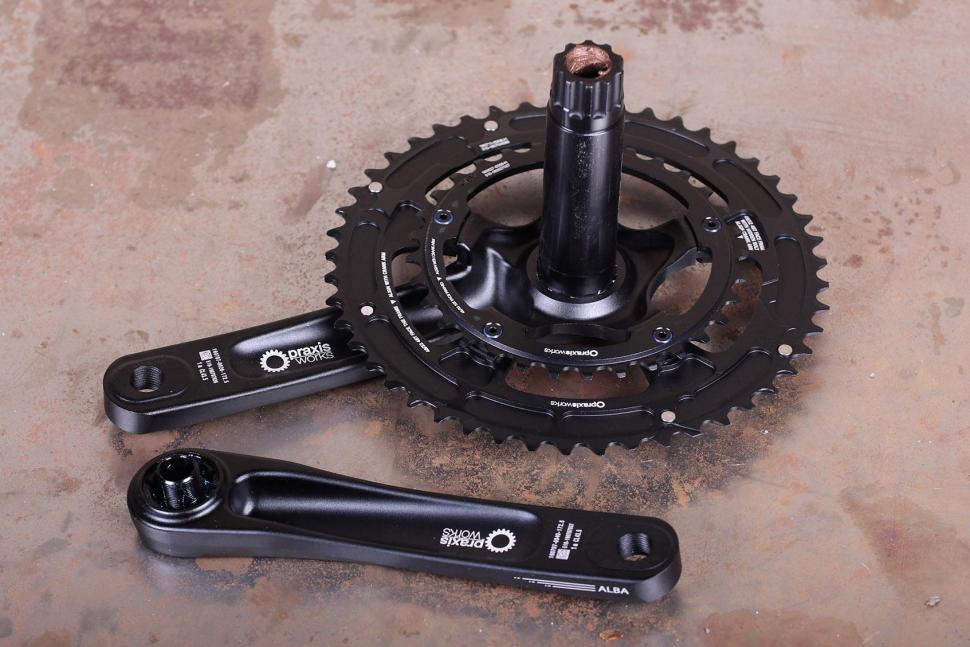
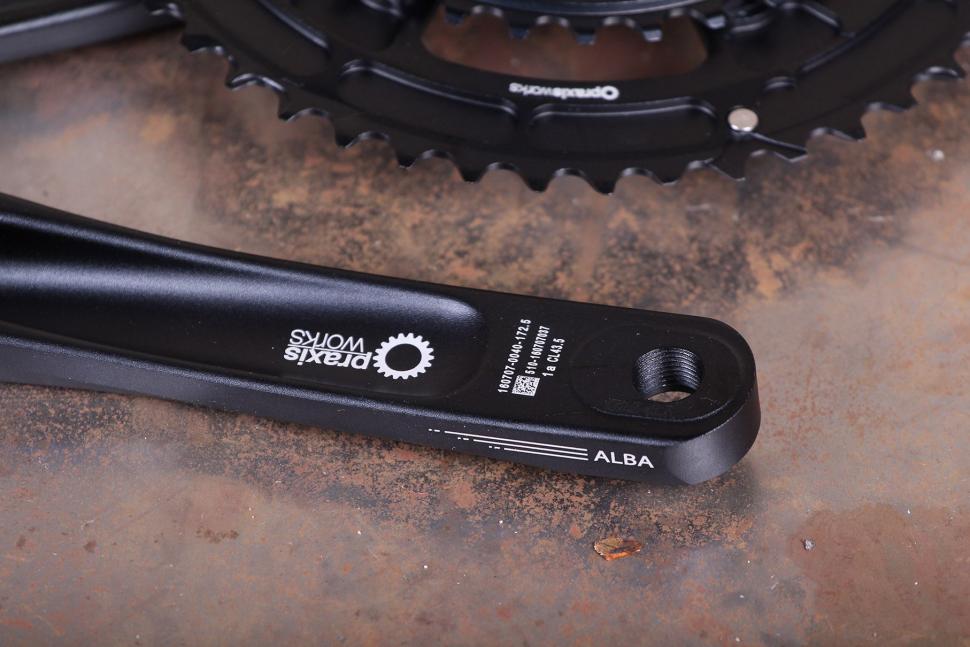
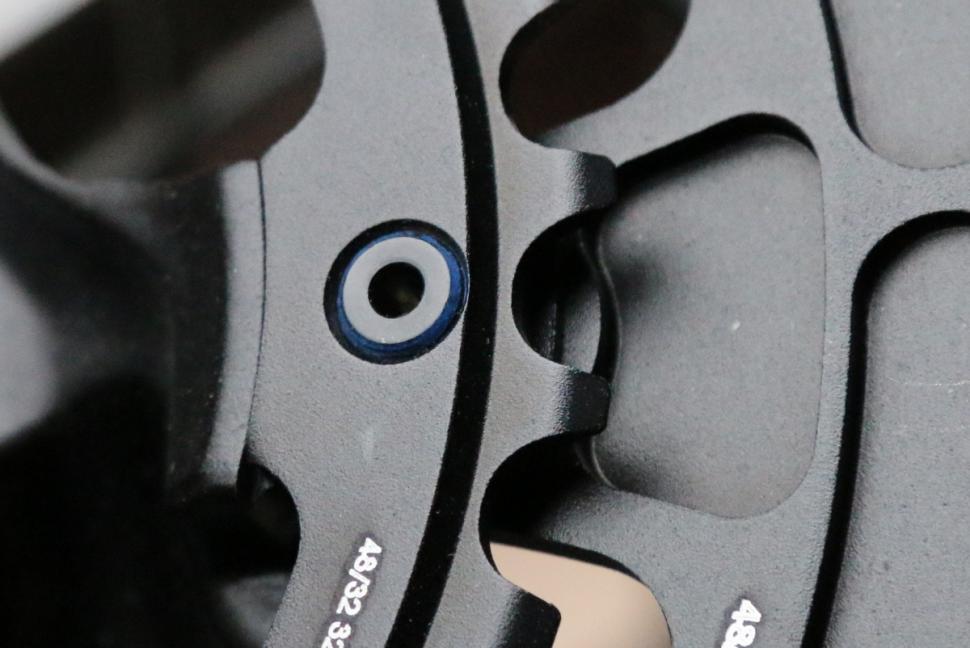
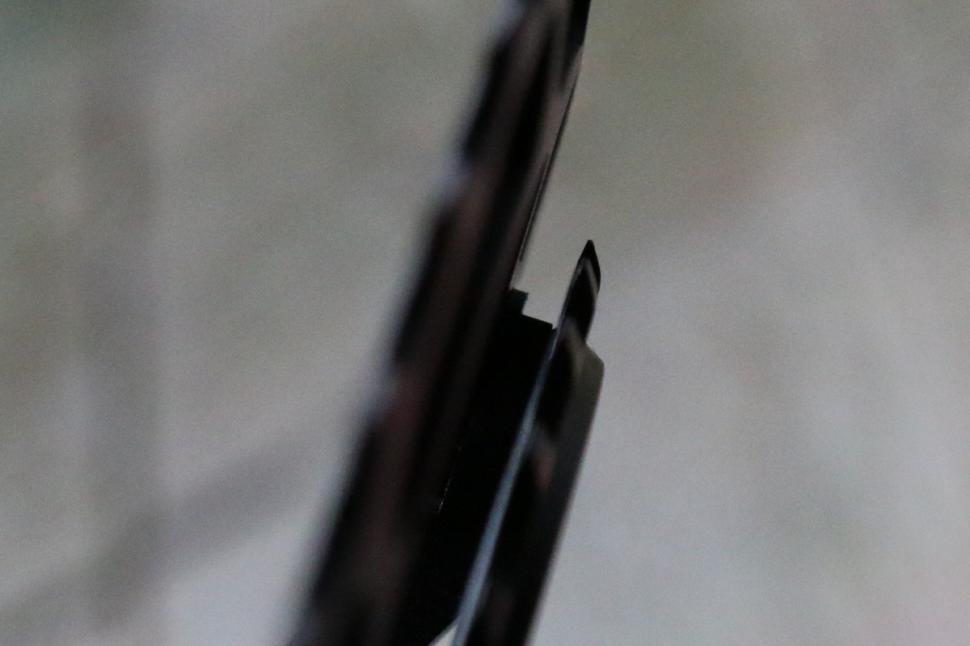

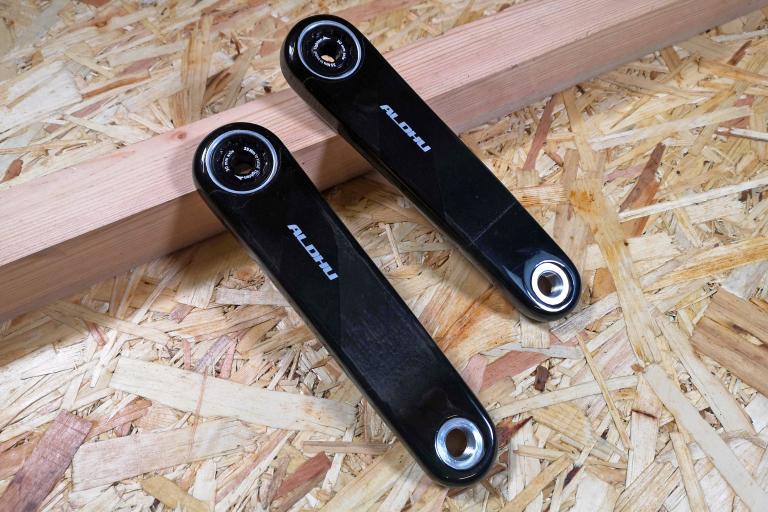
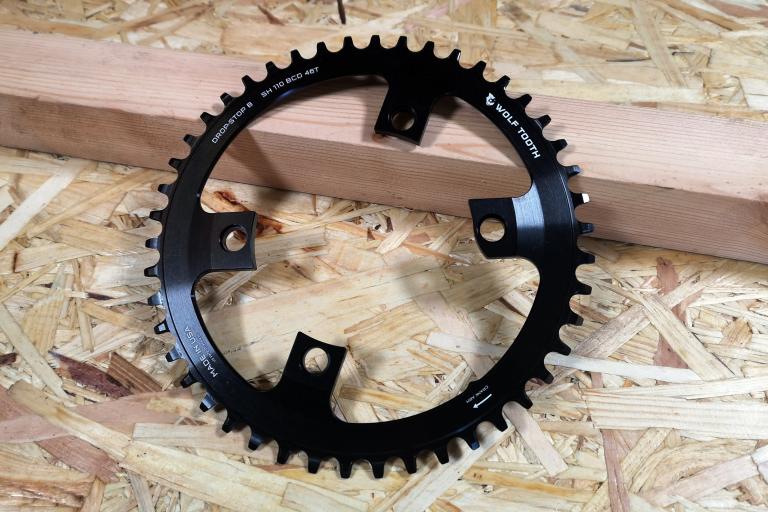
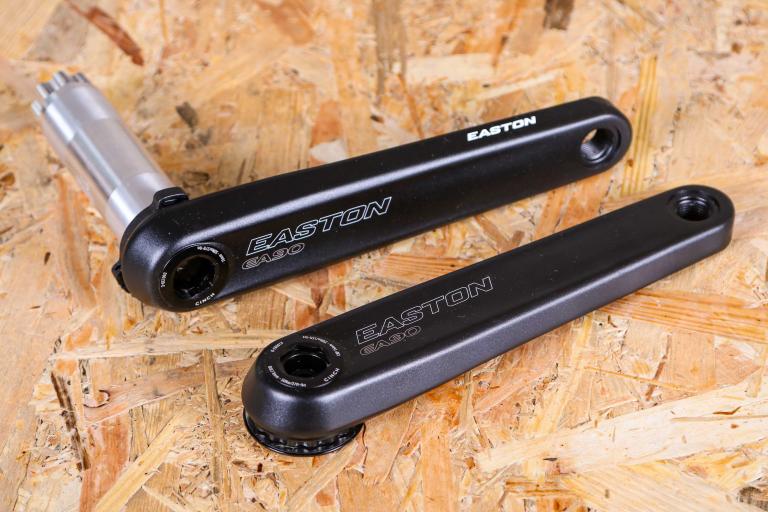
Add new comment
31 comments
This is on my wishlist - the 11-40 is fine, but would prefer smaller jumps out back and still be able to achieve that low a gear.
This is for multi day, mixed bikepacking trips before the fen-dwelling part timer wannabe racers start with their elitist nonsense.
I'm building my Bokeh with the Sugino 44/30 chainset paired with a 12/28 cassette. I reckon that'll give me a good range of gears for most of the kinds of riding I do - day rides, multi-day bikepacking and trips to the Dolomites/ Alps/ Pyrenees.
I'd looked at this chainset but the custom chainrings put me off TBH as I much prefer to have a choice of replacement rings available from several different sources than to discover a couple of years later that they've been discontinued.
http://www.ebay.com/itm/201858004612?_trksid=p2055119.m1438.l2649&ssPage...
nothing new under the sun..
I want one... don't care what some of you cycling fascists say, my gravel bike needs this as my 47 year old asthmatic ass struggles up the Yorkshire off-road hills even with a 32 at the back.
More choice = more people who will find the exact setup that'll bring them (even) more cycling joy.
Personally I'm waiting for the Rotor 1-piece 46/30 spider/ring to become available for my gravelbike (running 46/34 now) and since I have rotor 3D+ cranks on both by gravel and my roadbike, I will put the 46/30 cranks on my roadbike when I head to the mountains as I am a sh!t climber, but I still want to have fun.
Don't like it? Don't buy it! No need to be a dick about it.
The rest of us weaklings will gladly embrace whatever gearing options we can get.
A cyclocross 46/36T crank gives close ratios and a really usable big ring, but sucks when climbing steep roads. Slapping on a 32 or 30 small ring like what Praxis do (there's a 46/30 version I believe, or was it FSA's?) would be GREAT.
Wow, there are some dicks on here!
More gearing options are a good thing. Imagine if the only choice was 53/39 with a 12/23 cassette. There would be a fraction of the people riding road bikes that there are now.
The option for lower gears opens up road (and 'gravel') cycling to far more people. This seems like a nicely specced chainset. If you don't like the idea then that's fine but it will work for a lot of people (and be specced on a fair number of bikes therefore giving a nice low gearing option out of the box)
Some may say why not get a triple chainset? Well, they're heavier, don't shift as nicely and last time I looked there was bugger all made above Tiagra level. Also, as an upgrade is bloody expensive as new shifter, chainset and mechs ideally required.
Some may say ride more and get fitter / stronger. Not always an option for people short on time who just want to go out for an enjoyable ride when they get a chance.
FWIW I run 53/39 on my summer bike but only because it looks nicer
Exactly my problem, time! No hills of any length or steepness where I live, so I find it really difficult to really train for long Alpine climbs. Plus I'm not as young as I once was, but I still want to do these climbs.
Had a triple set up once, and the 30t inner was a blessing and allowed me to spin up Alpine climbs, rather than grind.
Can't run a triple on my Di2 set up, so running 50/33 using a TA inner.
But a 48/32 or 46/30 might be perfect or extend the range of my Ultegra GS mech to a 34 tooth cassette using a Wolf Tooth road link. Cheaper than buying an XT Di2 rear mech
https://cycleworx.co.uk/products/wolf-tooth?utm_medium=cpc&utm_source=go...
Well said Bendurance... TCR...3 little letters to silence the HTFU brigade.
For those that think this is unnecessary; have you tried riding a long 10%+ climb with a fully loaded bikepacking setup towards the end of a 300km day?
Everyone Is different but for me the Praxis Zayante 48/32 with a 11-32 cassette is perfect and will be my setup for this year's TCR.
Just to counteract a point... if you reduce chainring size, the jump between gears out back inceases as each single tooth becomes a greater percentage of the total gear.
I hope that makes sense
Nope, can't see the point, either, for a 2-tooth difference. Surely it's cheaper and easier to change the cassette for something a bit bigger.
I've got a standard 53/39 9 speed on one bike, which is fine most of the time, although I don't live anywhere particularly hilly. I did once do a very hilly Etape on it by swapping out the cassette for a the 11-32 one off my mountain bike and that worked a treat.
Since then, I've got a new bike with compact 50/34 11-speed and really don't feel the need to go any lower than that - it's great for the hills, but I'm pretty much running out of gears on the flat.
To me, it stinks of creating a solution for a problem that doesn't exist.
If you run out of gears on the flat at 50/11 you are surely a pro? 43mph at 120 rpm.. hmm..
pretty much anything with an 11t is a big gear - e.g. 48/11 is 41 mph ish at 120 rpm. Taking a bit off the chainrings will benefit the rest of the range with lower jumps, less weight, or easier climbing, if you need it.
Unless of course you really cannot pedal at more than 100 rpm. And if this is the case, I'd recommend working on cadence as otherwise your knees will not thank you for it!
But the problem does exist. Hence 32t cassettes, compacts in the first place.
This is an alternative method to getting an easier gear. It's also a very nice, high quality replacement chainset.
And that's the the point really. It's not ONLY available in that spec, you can buy a compact if you like. But, if you want to swap your chainset, have an easier time, there you go.
great, but first, most people should learn to pedal with cadence. 99% of the time, 11t starter cog is just plain unneccesary for a leisure cyclist. even 12t is seldomly used.
50-34 with 13-29 block is enough for almost any situation. imho.
How does cadence help when faced with a 20%+ climb?
But then you "don't live anywhere particularly hilly."
It always amuses me when people get upset about having more CHOICE
Never said it does But it's funny to see, how people whine about not having a low enough gear for a climb, yet, rigidly obsessed with having a 11t starter cog, which they never use
But it's funny to see, how people whine about not having a low enough gear for a climb, yet, rigidly obsessed with having a 11t starter cog, which they never use  ú
ú
a tighter cassette, which gives you a low gear at the end is always better, than a hugely spread mtb-style cassete.
the finer jumps allows you to spare some energy on the flats, because you find your sweet spot easier.
13-29 with 50-34. my choice.
That's quite a nice choice. I think I'd go for 13-32. I inherited my rear cassette that came with the second hand bike I purchased from a triathlete. The front ring was 52-39 and the rear cassette is a 10-speed 12-25.
After a bike fit I ditched the front ring as the crank was too long for my little legs. I swapped it out for a compact. But I kept the 12-25 and suffer for it on steep hills as I'm no whippet anymore.
While the close ratio is perfect for a time triallist on flat roads, it makes it very hard on anything past 18 per cent gradient. I live in South Somerset and there are a few 20 per cent hills that the fitter ride leads enjoy punishing us with on a Wednesday evening. I reckon moving to an 11 speed cassette with a ratio of 13-32 would do it for me, but I'd like the Praxis Works even more because it looks cool, and I could keep spinning. My cadence going the back way up to the Wyndham Gap last night must have been around 50rpm! Sheer hideousness.
Good but also a bit pointless. A compact with an 11-32 outback will do pretty much everything unless you are desperately unfit. So get maybe 5% fitter to get the same effect as this chainset. Alternatively the 1x stuff from sram with a mega cassette out back does the same for less faff, if its gravel you are taking on.
I'm just going to fix that sentence for you there...
A compact with an 11-27 outback will do pretty much everything unless you are desperately unfit.
I'm just going to fix that sentence for you there...
Ride what you want and ignore the ego driven cyclists who can tell what people should be capable of, age will catch up with them too, and then they'll see why bigger cogs outback can help people keep cycling as they get older
Well written, Sir.
Total hyperbole. I'd like to see you spend a fortnight in the Pyrenees, Alps or Dolomites and still have functioning knees left at the end of it with a low gear of nearly 34".
How is 1x a better option at 4 times the price and a new wheel? Also, in my experience beginners really enjoy being told they just need to train harder, then they can enjoy the sport.
People who make claims like that amuse me no end.
They are either young or do not have broad cycling experiences, or both.
When you are middle aged, see if those gears get you up the Mortirolo or the Muro di Sormano or something similarily tough ...
To look at it another way, running a sub compact could allow you to run a closer ratio cassette, eg 11-23 and still have a ok spread of gears.
It would also save weight over a 53/39 12-27 or whatever the equivalent 'standard' ratio would be..
Give me a triple any day ...
I would like one of these. Currently 50-34 / 11-28 on my best bike and could definitely use a lower gear sometimes.
Pretty favourably priced compared to an Ultegra chainset which is about the same price from wiggle. If only it was compatible with a Shimano BB - adding in the Praxis BB and tool puts £50 on top.
In my position getting a GS derailleur and 32t cassette next time my cassette needs replacing is the cheaper option.
Absolutely brilliant. Looking at building a fast tourer at the moment and this would be perfect, if it fits. The frame I've got is band-on so shouldn't be a prob. Wondering what power meter would go with this and if there'd be an issue with the eTap front mech..
About time! This looks like a very practical proposition for a lot of cyclists, especially 'new' cyclists or leisure riders .
.
Pages